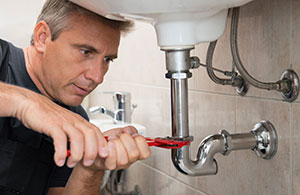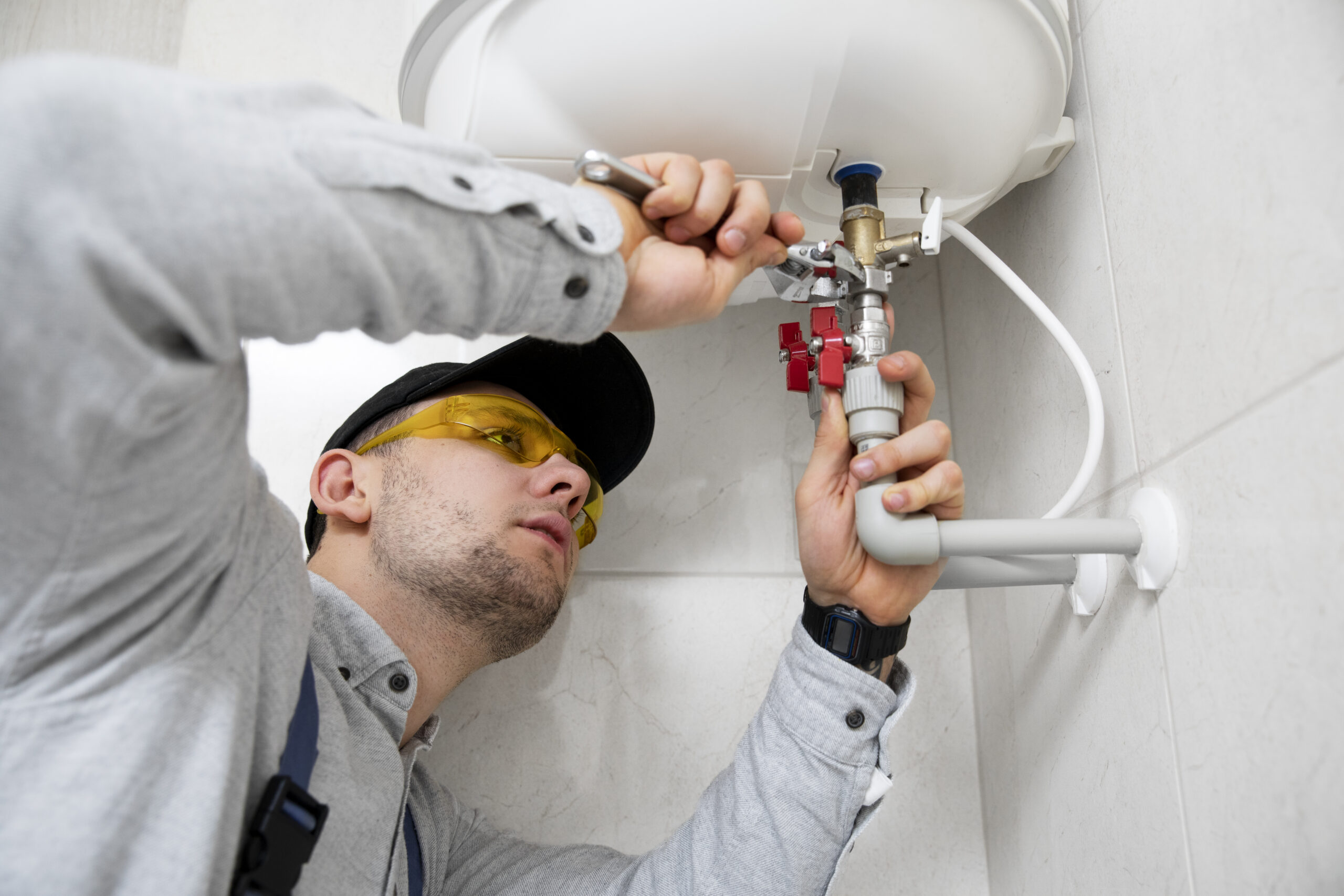Urgent Repair Advice: Ways to Manage Issues Until Assistance Arrives
Urgent Repair Advice: Ways to Manage Issues Until Assistance Arrives
Blog Article
Just how do you actually feel with regards to Expert Tips for Emergency Plumbing Repairs?

Pipes emergencies can strike at any time, creating stress and anxiety and prospective damage to your home. Whether it's a burst pipeline, a clogged up drainpipe, or a leaking faucet, recognizing exactly how to handle the situation up until a professional plumbing arrives can save you from more issues. This post offers important emergency plumbing pointers to aid you reduce damage and reclaim control during a plumbing situation.
Shut off the Water Supply
The very first step in any type of plumbing emergency situation is to turn off the water system. For localized issues, such as a dripping tap or toilet, switch off the shutoff near the fixture. When it comes to a significant leak or burst pipeline, locate your home's major water shut-off valve and transform it off promptly. Knowing the area of these valves ahead of time can save valuable time throughout an emergency.
Turn off Your Hot Water Heater
In certain emergency situations, such as a ruptured pipe, it's important to turn off your water heater. This protects against overheating or damage to the device when water stops moving. Turn off the power supply to the hot water heater (electric or gas) and allow it cool down to prevent possible risks.
Momentarily Stop a Ruptured Pipe
A ruptured pipeline can bring about considerable water damages in minutes. To mitigate the problem:
Call an expert plumber promptly to address the issue permanently.
Have an Emergency Pipes Kit
Prepare a fundamental plumbing emergency package to take care of minor problems properly. Your kit must include:
Having these tools accessible can make a significant difference in your capacity to manage emergencies.
Unclog Drains Pipes Securely.
A clogged drain can be an irritating and unpleasant issue. Right here's just how to tackle it:.
If these approaches do not function, stay clear of making use of too much pressure, as it might aggravate the obstruction.
Handle Overflowing Toilets.
An overflowing bathroom can trigger immediate chaos. Here's what you should do:.
Address Little Leaks with Short-term Fixes.
Small leaks can promptly come to be substantial issues if left unchecked. Make use of these short-term fixes till expert help gets here:.
While these fixes aren't long-term, they can help decrease water loss and damage.
Handle Frozen Water Lines Thoroughly.
In cooler climates, icy pipes are a common emergency. If you believe an icy pipe:.
Know When to Call a Specialist.
While quick fixes can help momentarily, specific pipes problems require instant professional interest. Call a plumber if:.
Immediately contacting a professional guarantees the concern is settled appropriately and prevents additional issues.
Protect against Further Damage.
Taking fast activity to minimize damage can save you money and time in the future. Below's how:.
Verdict.
Pipes emergencies can be frustrating, however with the ideal expertise and devices, you can take care of the scenario effectively until help shows up. By switching off the water, addressing small leaks, and using temporary fixes, you can minimize damage and keep your home safe. Remember, these tips are temporary solutions; always consult a licensed plumber to take care of the origin of the trouble. Prep work and fast thinking are your ideal allies in any kind of pipes emergency situation.
8 Helpful Tips for Managing Plumbing Emergencies at Home
If your plumbing system hasn’t failed once, wait for it because almost everyone has a story to tell. Sometimes, it could be simple emergencies such as a leaking pipe, a blocked cistern, or even a big burst pipe. In situations like this, you need to have some handy tips to save you some money and from possible damages.
Take care of minor issues early.
Sometimes, you could have avoided an emergency by taking proactive measures while it was still early. Some major plumbing emergencies can be a result of an ignored minor issue. We recommend that you have items like plumbing tapes and other related items. A plumbing tape can allow you to manage minor leaks before the plumber arrives.
Cut off the water supply.
This tip is essential in almost any type of leakage problem. For problems like minor leakages in the toilet or kitchen, turn off the supply that takes water to the affected pipes. If the leakage is a major pipe, you must shut off the supply valve to the entire building. This will help you avoid flooding your home and neighbors if you share a flat.
Know your plumbing system
Folks typically move into a new apartment without understanding the water supply around the building. This can prove disastrous if a water emergency arises and the plumber is far away. The previous tip will prove useless if you don’t practice this one. More importantly, know where your water shut-off valve is located – you’ll need that knowledge to prevent potential home floods.
Have some common handy tools
There are lots of plumbing emergencies that you can handle without hiring a plumber. That’s why you must keep some tools available always. Some tools that you can use to fix simple plumbing emergencies easily include plumbing tapes, screwdrivers, thread seal tapes, plungers, pliers, tape measures, and rubber gloves.
Insulate your pipes from cold
You’ll save yourself from many plumbing expenses if you protect your water pipes from the cold. This is because of the harmful effects that cold weather can have on your pipes. During winter, your pipes can burst from being overly expected to freezing temperatures. So, make sure insulators are there to keep the pipes working correctly.
Avoid practices that will clog your toilet.
Many people indulge in practices that can damage the plumbing system of the entire building. One of these is when they use their toilet to dispose-off garbage. They flush all kinds of things, such as paper towels, bandages, hairs, female sanitary products, etc., down the toilet. This will block your toilet in the long run, incurring unnecessary expenditures. Dump such waste in the trash instead.
Check your dials regularly.
Sometimes, there could be leakages in your home without noticing them in time. So, constantly monitor your water meter dial. If the dial is reading when there is nobody using water, this is an indicator that there is leaking. Check for leaks immediately. Call a plumber as soon as possible if you can’t find any.
https://www.constructionplacements.com/8-helpful-tips-for-managing-plumbing-emergencies-at-home/

We were brought to that editorial on What to Do During a Plumbing Emergency through an acquaintance on our other site. Sharing is nice. Helping others is fun. Thank you so much for taking the time to read it.
Call Report this page